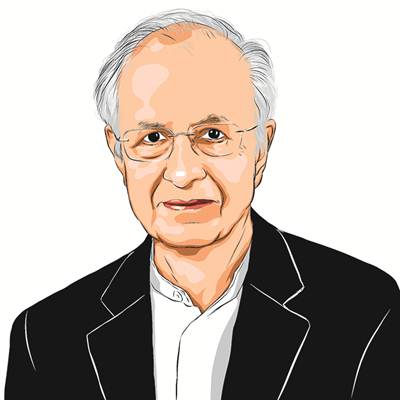Opinion It is time for Plan C
How to reshape the Planning Commission for our changed times
The consensus of all states in the recent meeting of the National Development Council was that we want growth and,even more,we want more inclusion in growth. It was also clear that we need a process to make the states and the Centre work together to solve common problems.
So far,we have considered two plans (or paradigms) for our progress. Plan A is a strong government above that lays down the rules. And makes sure everyone follows them. This is governance based on a power hierarchy. This paradigm is expressed in a strong Central government of a country,even in a strong CEO of a corporation. The problem is that the powers above often get it very wrong. Plan B is to leave it to the market in which the interacting atoms (or individuals) will figure it out somehow. This too is not satisfactory. Because,in reality,some atoms know more than others and are stronger than others. They set the rules,and manage the system to serve their ends.
Whereas Plan A,based on an overbearing hierarchy,can lead to stasis,Plan B has the potential for chaos and other undesirable outcomes such as undemocratic power structures taking charge. The ideological debates that have raged across the world in recent decades,between communism and socialism on one side and liberal capitalism on the other,are about whether we should have more or less government. Or more or less free markets.
There is a third way however. This is Plan C for governance.
It is high time that both the pro-government types,and the pro-market types came together to explore Plan C. Because Plan C is better suited to learning and adapting to complex phenomena that experts cannot fully understand and a world in which problems do not know state and national boundaries.
The 2008 Nobel Prize in Economics was awarded to Oliver Williamson and Elinor Ostrom. The prize implicitly acknowledged that there were three models of organisation of economies and societies. Williamson described two of these hierarchies and markets. These are the paradigms underlying Plans A and B. Ostrom,on the other hand,described self-governing communities,pointing to a Plan C. Plan C is also based on insights from the way complex self-adaptive systems function.
Many people consider a Planning Commission in the 21st century an anachronism. Therefore,Indias Planning Commission is considering processes required to plan and govern in a 21st century world in which many things are inter-connected and people want a greater say in the way they are governed. Four principles of Plan C provide the architecture. These are the Four Ls: localisation,lateralisation,learning and listening.
The principle of localisation is founded on the realisation that one size does not fit all. And that,whereas there could be universal principles,there is not likely to be a single package of these principles with universal applicability. The packaging must be done by local communities.
The principle of lateralisation requires that lateral links be deliberately designed across boundaries. So that people coordinate laterally,rather than expecting a power above them to compel them to coordinate. Ostroms research describes ways to achieve lateral coordination without an over-bearing coordinator above. Such lateral coordination is obtained by communities of shared interests and processes for collaborative decision-making.
The third principle is learning based on systems thinking. Systems thinking is an orientation that has been killed by over-specialisation. Experts live in conceptually gated communities. They know a lot about a little. And understand little about the whole. Processes for understanding systems must be applied to enable us to solve global problems that have been created by our fragmented views of reality.
The fourth principle is listening. Experts must listen to each other. But most of all,experts must listen to the real people. They must understand the language of real people. A line from Woody Allens Midnight in Paris explains it very well. Amelia,the French woman,says to Pinder,the American writer: Thats the problem with you writers. You are full of words. But I am more emotional. This is Indias challenge of governance. People are saying: Thats the problem with you economists and planners. You are full of numbers. You dont understand our emotions our hopes and fears. How can we trust you to create a better world for us? Therefore,we must build processes for listening. It is not easy in a vast country in which people have varied perceptions and interests,and may not want to listen to each other. But only by listening to many perspectives can we understand the whole system.
This is Indias 21st century challenge. Mindsets and institutions are not easy to change,even after their use by dates. But change we must to realise our aspirations for a more inclusive society. New processes must be invented. Sixty years ago,our far-seeing Constitution created political democracy. Now there is a growing recognition of human rights that go beyond the political right to vote,to economic and social rights too to livelihoods,education,health and dignity. Movements for obtaining such rights are being turbo-charged by the power of information unleashed by Indias Right to Information laws and enabled by 21st century communication technologies. The Centre can no longer control. Now we must shape plans by the people for the people. For inclusive growth,we must go past Plans A and B,to Plan C.
The writer is a member of the Planning Commission


